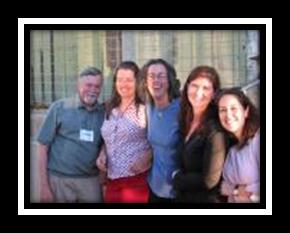
Athabasca University | AU Student/Staff Login | Invited Guest Login
- Blogs
- Sheri Oberman
- Doctoral Education Needs an Infusion in Canada
Doctoral Education Needs an Infusion in Canada
A report on the Canadian Association of Graduate Studies highlights Graduate Studies Professional Development (GSPD) as a solution to the wider marketplace for graduate students and the changes to scholarship brought about by the Information Age.
One problem cited in the report by former a former dean of graduate studies Marilyn Rose, is the glacial speed of change to the ‘reproduction’ model of doctoral education. Instead of tacking on graduate skills for professional development to graduate education as the report recommends, doctoral programs need to examine their pedagogy. Rethinking doctoral curricula with its students, who will be the face of scholarship in the future, to infuse twenty-first century scholarship practices, is imperative.

Carnegie Team
Attrition and long times to completion dog and doom doctoral programs. Canadian deans of graduate studies and doctoral educators need to look at processes for renewal of doctoral education. The Carnegie Initiative on the Doctorate (CID) influenced American doctoral programs to rethink the purposes of their practices, the intellectual cultures of their departments and to privilege student voice. The University of Minnesota embraced the CID and developed the Graduate Review and Improvement Process (GRIP). At Stanford, a new Ph. D. program aims for a five year completion rate, instead of seven years, due to insights applied from the CID.
In Canada we need an initiative similar to the Carnegie initiative to bring our doctoral programs into the twenty-first century. We don’t need to tack on skills; we need to infuse skills into doctoral programs. Doctoral education needs an infusion of fresh Canadian thinking.
Original: http://fabricationnation.wordpress.com/2013/05/31/doctoral-education-needs-an-infusion-in-canada/
By: SheriO
Posted: May 31, 2013, 7:18 am
- At the end of this post a successful reader will be able to make better use of learning outcomes
May 9, 2024 - 1:08pm
Jon Dron - Slides from my webinar, How to Be an Educational Technology: An Entangled Perspective on Teaching
September 24, 2024 - 1:00pm
Jon Dron - NASSR Conference 2025 (Online): Romanticism’s Commons
May 20, 2024 - 12:50pm
Mark A. McCutcheon - NASSR Conference 2025 (Online): Romanticism’s Commons
May 20, 2024 - 12:51pm
Mark A. McCutcheon
Tag cloud
Welcome to the Landing
The Landing is a social site for Athabasca University staff, students and invited guests. It is a space where they can share, communicate and connect with anyone or everyone.
Unless you are logged in, you will only be able to see the fraction of posts on the site that have been made public. Right now you are not logged in.
If you have an Athabasca University login ID, use your standard username and password to access this site.
Adding comments to this site
We welcome comments on public posts from members of the public. Please note, however, that all comments made on public posts must be moderated by their owners before they become visible on the site. The owner of the post (and no one else) has to do that.
If you want the full range of features and you have a login ID, log in using the links at the top of the page or at https://landing.athabascau.ca/login (logins are secure and encrypted)
Disclaimer
Posts made here are the responsibility of their owners and may not reflect the views of Athabasca University.


